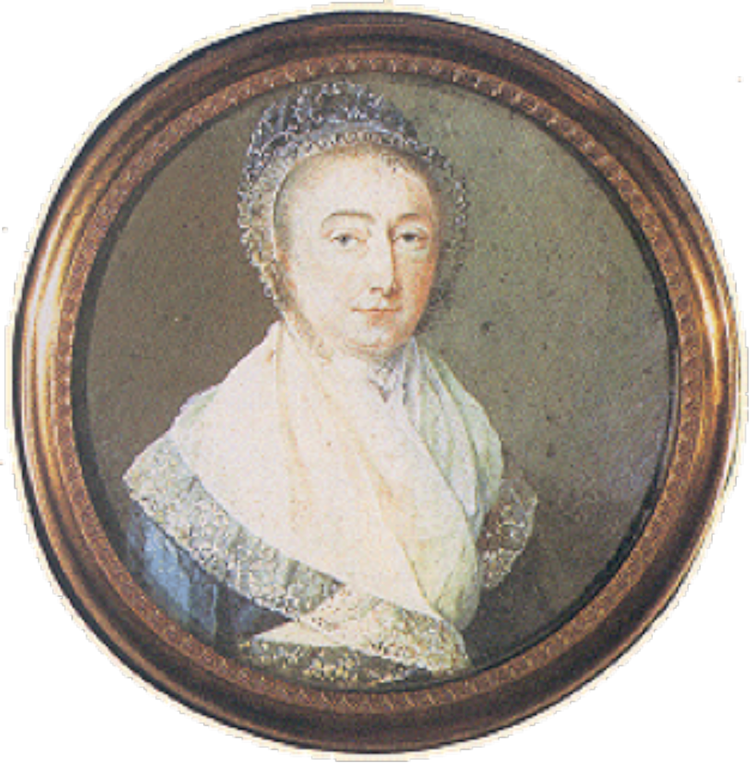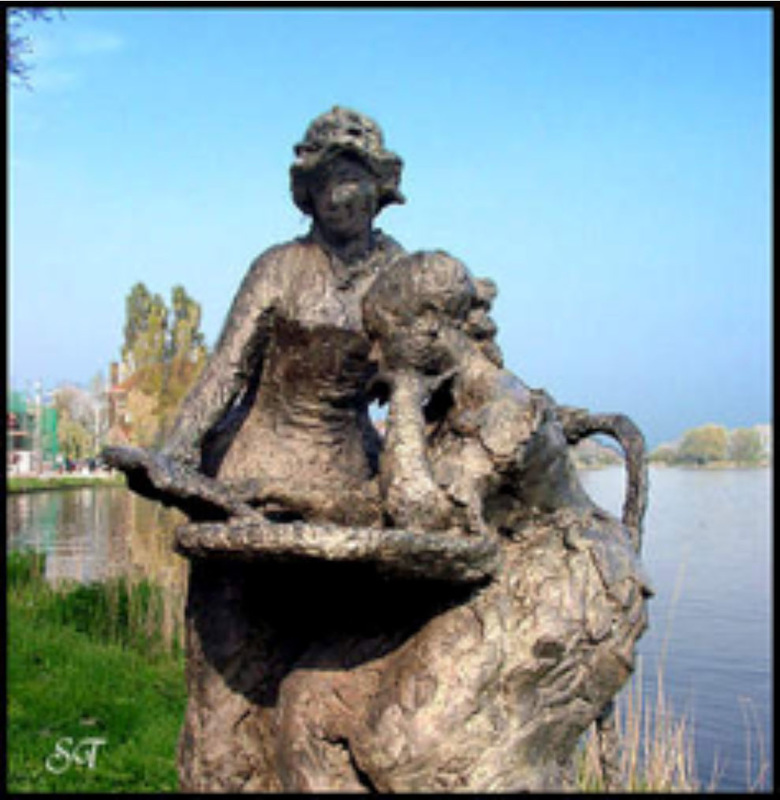|
Aagje Deken (1741-1804) and Bejte Wolff (1738-1804) Aagje Deken and Elizabeth Bekker “Bejte” Wolff were Dutch Mennonite novelists, poets and political activists. Aagje was orphaned at a young age and placed in a Mennonite Collegiant orphanage near Amsterdam. After leaving the orphanage she began her own tea and coffee business while also serving as a domestic in Mennonite homes. She was baptized in the Mennonite Collegiant congregation in Rijnsburg in 1776. Shortly thereafter she published a book of devotional poems that were eventually set to music and became a hymn book for the Haarlem Mennonite Church.
Bejte Wolff was from the Reformed tradition and also wrote devotional poetry. She was married to a pastor who was decades older they lived in a small village near Rotterdam. Bejte’s husband was in ill health and Aagje moved in to assist her with household chores. After he passed away, the two women continued living together and collaborated on many projects. They wrote novels, political essays and poetry which listed both as authors. They were bold in their writing and actions. They called a National Day of Prayer for all Jews, Catholics and Mennonites during a time when they were sharply divided. They frequently appealed for equal citizenship for all religions, for gender equality and justice before the law. They were inseparable in their daily life. Both were active in the Mennonite church in The Hague. They pioneered the epistolary novel form where characters that never spoke face to face but wrote revealing letters to each other. The first was Sarah Burgerhart a novel which explored the life of a woman who was suffering, not for her faith or ideology, but instead due to the inequality women routinely face. The popularity of this novel thrust them into a national spotlight. A Dutch literary tradition was born! Another epistolary novel The History of Sir William Leevend soon followed. Their novels expressed alarm over the moral laxness of the time that victimized women more often than men. Together they wrote volumes of poetry and many were included in a subsequent Dutch Mennonite hymnal. They persistently called on religious and political leaders to focus on their social responsibilities and turn away from doctrinal or dogmatic disputes. They advocated greater reliance on science in the quest for truth. They developed close ties with political causes that advocated equality and justice. When the Prussians invaded The Netherlands, Deken and Wolff fled into exile. They lived in Southern France where they wrote what might be termed an early travel guide, Strolling through Burgundy and another novel The History of Miss Cornelia Wildschut. While in exile, Aagje wrote to the Mennonite Pastor in Haarlem, “I want to help the Mennonite congregation to whom I am dearly attached.” When the Dutch defeated the Prussians, Deken and Wolff returned as heroines who had protested political oppression. The Mennonite historian Michael Driedger (Brock University) asks how we moderns can understand this close relationship. Deken and Wolff shared everything: writing, political action, kitchen, exile, a study and bed. He concludes that since neither ever wrote about their personal relationship we ought to leave it to historical ambiguity. Another historian, Nanne van der Zijpp, stated that they are remembered and admired as much for their relationship as for their writings. Their ten year exile in France exhausted their financial resources. From that time forward, they were assisted by the Mennonite Church in The Hague. Although it is not documented, they were reported to live in one of the Mennonite homes for the aged. Seven years after their return from France, when the both were active in the Mennonite Church, they became ill and died within 9 days of each other. Funeral services were held in the Mennonite Church following which they were buried in the same grave. But death did not have the final word; their poems, hymns and novels are valued by a church and a nation that has embraced them. The city of Amstelveen commissioned a bronze statue in their honor that was installed in 1969. In Amsterdam, there is a street named in their honor. Comments are closed.
|
DownloadThe Living Mirror: Archaeology of Our Faith
Archives
December 2018
|
||||||
|
* = login required
|
Visit425 S. Central Park Blvd.
Chicago, IL 60624 |
Contact |



 RSS Feed
RSS Feed
